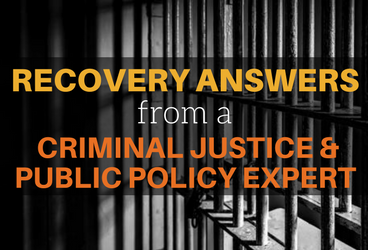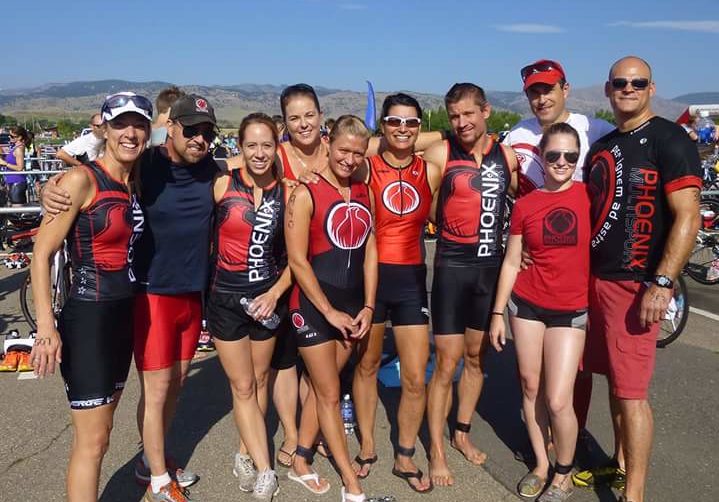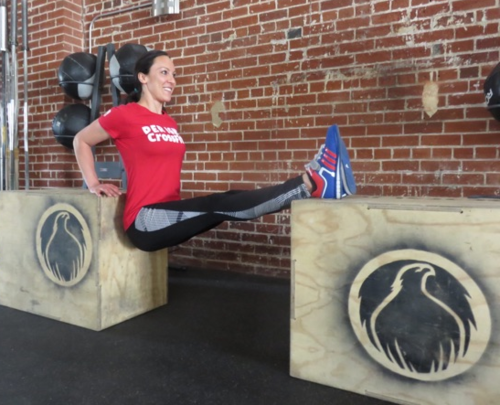
April 30, 2018 |
April Is Second Chance Month: The Phoenix Rising
By Susan Broderick
President Trump and leaders across the country have designated April as “Second Chance Month.”
National Second Chance Month is an ongoing effort designed to draw attention to ways in which we can give Americans with criminal records the opportunity to start again and rebuild their lives. Given the correlation between addiction and the criminal justice system, this is an issue close to heart of many involved in the addiction and recovery space.
With different individuals and organizations working towards this very end, one organization stands out: The Phoenix.
I first learned about The Phoenix in 2012 at meeting in Colorado. A prosecutor at the event spoke about a program they were using in their drug courts and probation programs to help people with drug and alcohol problems. The Phoenix provided a sober network of positive peers to individuals in recovery, offering activities such as cycling, yoga, and CrossFit.

The moment I heard about the Phoenix, I knew it was a brilliant concept. As a former prosecutor, I knew that connecting those who commit crimes and have substance use issues with positive places, people and things was the missing link in so many justice systems. As a woman in recovery, I knew the importance of a sober peer network. A few months later I joined the Board, and getting to know the staff and the members has been one of the greatest gifts of my professional and personal life.
More than half of Phoenix members have had some type of involvement in the criminal justice system and many first came to Phoenix through the courts. As we speak, The Phoenix is in the process of expanding its programming across the entire justice continuum through the creation of “Phoenix Inside and Out” – an innovative and exciting program that will work for those who might just be entering the system as well as those who are coming out of prison and back to their communities.

Like a Phoenix being reborn from the fire, The Phoenix offers individuals with substance use disorder histories a way to start again, and rebuild their lives.
One of the most exciting new programs is the “Specialized Drug Offender Program” (SDOP), designed specifically for high-risk, high-need offenders in Denver. This program provides wrap around services through a partnership between Denver Adult Probation, Mile High Behavioral Healthcare (Mile High), Denver Health, and Phoenix. Probation officers are present at Phoenix every Monday morning to meet with clients and engage in physical activities.
This program is achieving incredible results. One of the reasons for it’s success, is the Director of Programs and Partnerships, Dana Smith. Dana is an incredible professional, and is one of the most remarkable and resilient people I have ever met.
DANA’S STORY
 Dana grew up in a suburb outside of Chicago. She started using heroin when she was 17 and soon became addicted. She would drive down to the South Side of Chicago to get her drugs, and was soon making the trip several times a week.
Dana grew up in a suburb outside of Chicago. She started using heroin when she was 17 and soon became addicted. She would drive down to the South Side of Chicago to get her drugs, and was soon making the trip several times a week.
One night Dana was driving back home when she was involved in an accident that took a man’s life. Shortly after that, she was sentenced to five years in prison and served this sentence in the Illinois Department of Corrections.
Dana knew she had to change. When she arrived at prison, she started running and set a goal of someday running in the Chicago marathon. During her time in prison, she would run in the courtyard and had another inmate who trained alongside her for the marathon.
One evening, Dana was in the community room and the “CNN Heroes” show was on the air. One of the “heroes” was Scott Strode, founder of Phoenix and there was a segment about the program. As she sat in prison that night, Dana said to herself, “One day I am going to work for that organization”.
Shortly before the end of her prison sentence, several of her friends warned that her dream of training for the marathon was going to be short-lived on the “outside”. Given the fact that she was going to have to wear an ankle monitor and stay within a number of feet of her home, training would be impossible.
 Dana’s parole officer was tough. But something happened when he heard about her dream to run the marathon. It turned out that he had run the marathon as well. And so, he decided that he would be able to monitor her on parole in a way that would allow her to train for the marathon.
Dana’s parole officer was tough. But something happened when he heard about her dream to run the marathon. It turned out that he had run the marathon as well. And so, he decided that he would be able to monitor her on parole in a way that would allow her to train for the marathon.
In October 2014, Dana successfully completed the marathon and a short time after that she moved to Denver. Although she had never met Scott Strode, she knew she wanted to one day be a part of The Phoenix.
Flash forward to today, where Dana oversees the criminal justice programming in Denver, and provides real life hope to every person she comes in contact with.
Everyone needs a second chance. I am so glad that Dana was given a second chance, so she could have the opportunity to show the world what a truly remarkable and amazing person she is.
I am so grateful that I have had the chance to meet and get to know Dana. With all of the attention paid to the addiction crisis, overdose deaths, and prison overcrowding, it’s so nice to know that Dana and millions like her have experienced redemption and a second chance through the transformative process of recovery.
Susan Broderick, J.D., is the Founder and CEO of Building Bridges to Recovery. She was formerly Associate Research Professor at Georgetown University and Project Director of the National Juvenile Justice Prosecution Center, and Assistant District Attorney in Manhattan, N.Y., from 1989 to 2003.
Editorial Contributions by: Alexandra Plante
